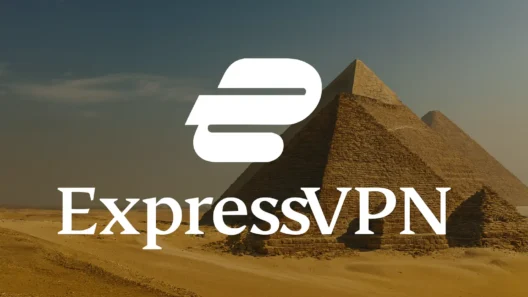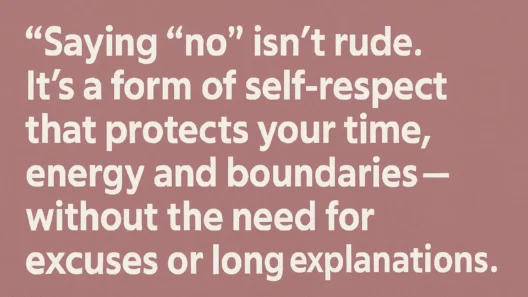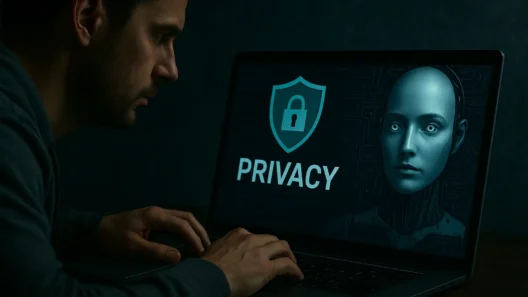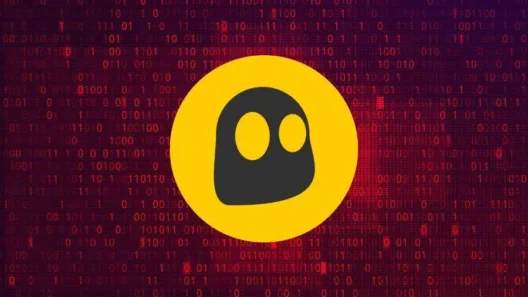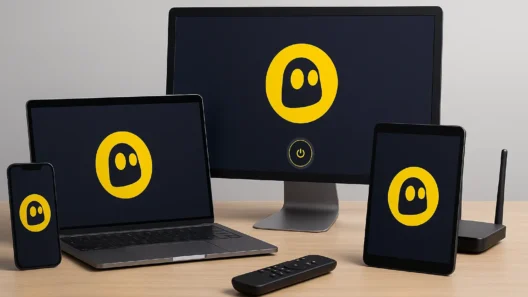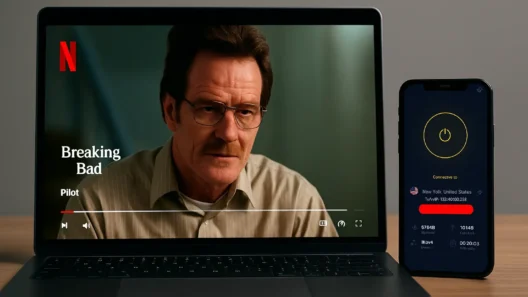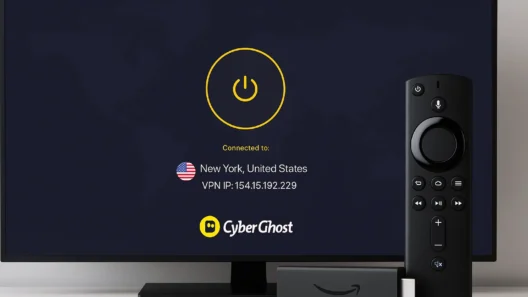The bags are packed, the boarding passes printed, the kids already asking “Are we there yet?” Before we even leave the driveway, there’s one thing I make sure is ready: my VPN. And not just mine – my whole family uses it too.
After years of traveling, working remotely, and watching my kids grow up online, I’ve realized one thing: having a VPN isn’t optional. It’s essential. Whether you’re headed abroad for a summer vacation or spending a weekend at a hotel in the next city, there are more reasons than ever to make sure you and your kids are protected online.
Let me walk you through why a VPN is one of the smartest (and cheapest) digital tools to bring with you when you leave home.
1. Public Wi-Fi Is a Data Trap
Airport lounges. Hotel lobbies. Cafés with free Wi-Fi. It all sounds convenient, until you realize anyone can jump on those networks. That means anyone with the right tools can also spy on what you’re doing.
When you’re browsing without protection, your personal data — passwords, messages, financial info — is out there, vulnerable. A VPN creates an encrypted tunnel between your device and the internet, scrambling your data into unreadable nonsense. Even if someone tries to intercept it, they’ll get nothing useful.
2. Stop the Digital Snooping
Internet providers love to watch what you do online. Advertisers too. Every search, every video, every “random” ad you see is often the result of your digital habits being tracked.
And when you travel and connect through different networks, you’re giving new companies and local providers the same access.
A good VPN blocks all of that. It hides your IP address, encrypts your traffic, and stops data collectors from profiling you or your kids. Total digital invisibility.
3. No More Geo-Censorship
I’ve been in places where I couldn’t use WhatsApp calls, stream a show, or access basic news sites. Why? Because those services were restricted by the country’s internet policies.
With a VPN, I choose the country I want to appear to be in. One tap, and suddenly the web works like it does at home. Netflix, WhatsApp, banking apps – they all become accessible, regardless of my real location.
4. Say Goodbye to Location-Based Price Hikes
Ever noticed how flight prices, hotel rates, and even digital subscriptions change depending on where you are? That’s not a glitch. That’s geo-pricing.
With a VPN, I can test prices from different countries. It takes a bit of experimentation, but I’ve found some amazing deals just by pretending I’m somewhere else. Same product, same service – different (and lower) price.
5. Stream Like You’re at Home
Kids want their favorite cartoons. You want the next episode of that true crime documentary. But surprise: your favorite streaming library is suddenly different abroad.
Most streaming platforms offer different content by country. A VPN lets you bypass those restrictions and watch as if you’re still back home. Just connect to your home country server, reload the app, and enjoy. It’s that easy.
Not all VPNs can do this reliably, but premium ones like NordVPN, Surfshark, and ExpressVPN handle it effortlessly.
6. Gaming Without Borders
Whether you play Call of Duty, Fortnite, or any multiplayer game, region locks and server limitations can be a pain. With a VPN, my kids can connect to friends overseas, access different lobbies, and sometimes even get better ping by switching regions.
Plus, VPNs protect against DDoS attacks. These are nasty digital assaults where someone tries to flood your connection with traffic to kick you off the game. With your IP hidden, you’re safe.
7. Safer Torrenting (the Legal Kind)
Let’s be clear: I’m not talking about piracy. But if you download open-source software, large public files, or even free Linux distros via torrents, you’re still exposing your IP address to everyone in the swarm.
A VPN keeps your activity private and encrypts your connection. No one sees your real location, and your internet provider doesn’t know what you’re downloading. Privacy preserved.
8. The Truth About Free VPNs
Free VPNs sound tempting, but most are too good to be true. They’re often slow, limited in bandwidth, full of ads, and in worst cases – collect and sell your data. I once tried one that slowed my phone to a crawl and bombarded me with shady pop-ups.
Go with a trustworthy, paid VPN. The difference is night and day.
9. Does It Slow Your Internet? Sometimes.
Because VPNs reroute and encrypt your traffic, there’s a slight delay. But with high-end services, that delay is barely noticeable. In fact, I’ve had situations where VPNs actually improved my streaming quality by avoiding ISP throttling.
If you stick to premium services, you’ll barely notice the difference.
10. Device Compatibility Can Be Tricky
Phones, laptops, and tablets? No problem. But smart TVs, game consoles, or older devices might not support VPN apps.
My workaround? Install the VPN on your home router. That way, every device connected to your network is automatically protected – no matter what it is. ExpressVPN even offers a pre-configured router called Aircove that makes setup a breeze.
11. Not All Countries Welcome VPNs
Most places are VPN-friendly, but there are exceptions. Countries like North Korea ban VPNs entirely. Others, like China or Russia, restrict their use or require government-approved (read: compromised) providers.
If you’re heading somewhere with strict digital laws, research first. And use VPNs that offer “obfuscation” features to hide the fact you’re using one.
12. Setup Can Be a Little Technical
Installing a VPN on your phone or laptop is easy. But setting one up on a router or configuring advanced features (like kill switches or split tunneling) can take a little time.
Thankfully, most providers have detailed guides and great support. Once it’s done, it’s basically set-and-forget.
When to Use a VPN – And When You Probably Don’t Need It
Use a VPN:
- Anytime you’re on public Wi-Fi
- When traveling abroad and streaming or banking
- To unlock blocked content or bypass censorship
- If you’re working remotely on sensitive systems
- When torrenting or sharing large files
Probably skip it:
- While doing basic browsing on a secure home network
- If you’re using apps that block VPNs (some banks or services)
- If VPNs drastically reduce your speed and you’re gaming competitively
What VPN I Use and Why
After testing a bunch, I landed on NordVPN. It’s fast, easy to use, secure, and works across all my devices (including the router). Their custom NordLynx protocol is blazing fast, and features like Threat Protection add an extra layer of safety for my kids.
But you can’t go wrong with any of these:
- NordVPN – Top-tier speed and security
- Surfshark – Great value, unlimited devices
- ExpressVPN – Best for streaming, great UI
- CyberGhost – Ideal for beginners
- PIA (Private Internet Access) – Advanced options and strong torrenting support
| My 5 Best VPN for Travel | Offer + Discount | URL |
|---|---|---|
| NordVPN | 77% off + 3 months free | Try NordVPN |
| ExpressVPN | 61% off + 6 months free | Try ExpressVPN |
| SurfShark | 87% off + 2 months free | Try SurfShark |
| CyberGhost | 83% off + 2 months free | Try CyberGhost |
| PIA VPN | 82% off + 2 months free | Try PIA VPN |
Final Thoughts
These days, a VPN is more than just a techy extra – it’s a digital shield. Especially when you’re traveling or your kids are online. It gives you peace of mind, opens up the web, and helps you take back control over your data.
Set it up before you hit the road, test it at home, and you’ll wonder how you ever traveled without it.

